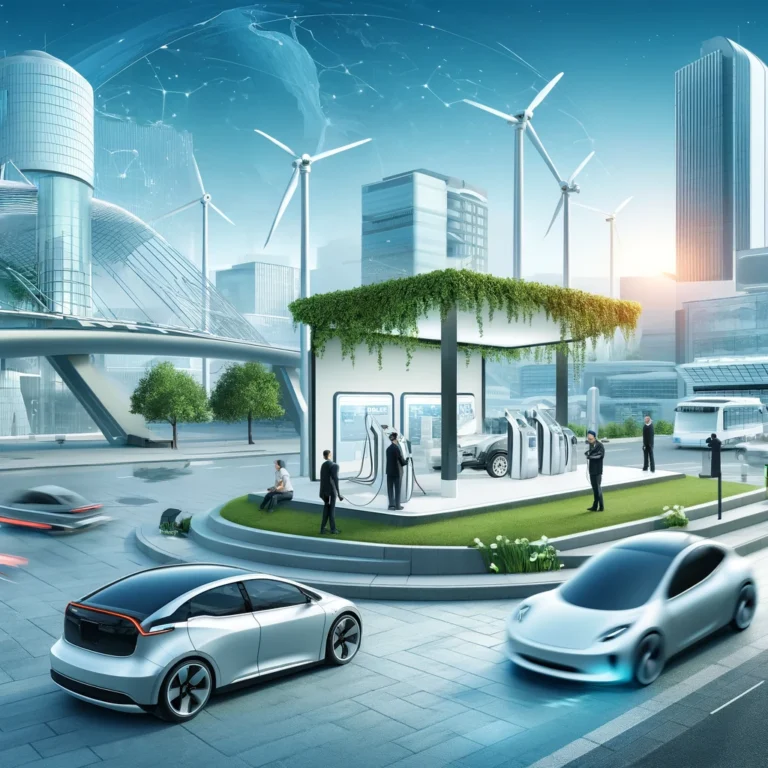The automotive industry is undergoing a significant transformation with the rise of electric vehicles (EVs). Driven by technological advancements, environmental concerns, and changing consumer preferences, EVs are becoming an increasingly popular alternative to traditional gasoline-powered cars. This article explores the factors contributing to the growth of electric vehicles, the benefits they offer, and the challenges that must be addressed for widespread adoption.
Factors Driving the Growth of Electric Vehicles
1. Technological Advancements
Technological innovations have played a crucial role in the development and popularity of electric vehicles. Improvements in battery technology have led to longer ranges, faster charging times, and lower costs. Lithium-ion batteries, which are commonly used in EVs, have seen significant advancements, resulting in better energy density and durability.
2. Environmental Concerns
The growing awareness of environmental issues, such as climate change and air pollution, has increased the demand for cleaner transportation options. Electric vehicles produce zero tailpipe emissions, reducing the amount of greenhouse gases and pollutants released into the atmosphere. This makes EVs an attractive option for environmentally conscious consumers and policymakers.
3. Government Incentives and Policies
Many governments around the world are implementing policies and incentives to encourage the adoption of electric vehicles. These measures include tax credits, subsidies, and grants for EV buyers, as well as investments in charging infrastructure. Policies such as emission regulations and bans on the sale of new gasoline and diesel vehicles in the future are also driving the shift towards electric mobility.
4. Rising Fuel Costs
Fluctuating and rising fuel costs have made electric vehicles a more economical choice for many consumers. While the initial purchase price of an EV may be higher than that of a conventional car, the lower operating and maintenance costs can make EVs more cost-effective in the long run.
Benefits of Electric Vehicles
1. Environmental Impact
Electric vehicles contribute to a significant reduction in greenhouse gas emissions and air pollutants, leading to improved air quality and a lower carbon footprint. The use of renewable energy sources to charge EVs can further enhance their environmental benefits.
2. Cost Savings
Although EVs can be more expensive upfront, they offer considerable savings over time. Electric vehicles have lower fuel costs since electricity is cheaper than gasoline or diesel. Additionally, EVs have fewer moving parts, which means lower maintenance and repair costs.
3. Performance and Convenience
Electric vehicles provide a smooth and quiet driving experience, with instant torque and acceleration. Many EVs come equipped with advanced technology features, such as regenerative braking, which captures energy during braking to extend the vehicle’s range. The convenience of home charging eliminates the need for frequent trips to the gas station.
4. Energy Independence
The adoption of electric vehicles can reduce dependence on fossil fuels and enhance energy security. By utilizing domestically produced electricity, countries can decrease their reliance on imported oil, promoting greater energy independence.
Challenges to Widespread Adoption
1. Charging Infrastructure
One of the main challenges facing the widespread adoption of electric vehicles is the availability and accessibility of charging infrastructure. While the number of charging stations is increasing, there is still a need for more extensive networks to support long-distance travel and alleviate range anxiety.
2. Battery Technology
Despite significant advancements, battery technology still presents challenges, such as limited range, long charging times, and high costs. Continued research and development are necessary to improve battery performance and make EVs more affordable.
3. Market Penetration
The transition from conventional vehicles to electric vehicles requires a substantial shift in consumer behavior and market dynamics. Educating consumers about the benefits of EVs and addressing concerns about range, charging, and cost will be crucial for increasing market penetration.
4. Resource Availability
The production of batteries for electric vehicles relies on critical minerals such as lithium, cobalt, and nickel. Ensuring a sustainable and ethical supply chain for these materials is essential to support the growth of the EV market.
The rise of electric vehicles represents a transformative shift in the automotive industry, driven by technological advancements, environmental concerns, and supportive policies. While challenges remain, the benefits of electric vehicles in terms of environmental impact, cost savings, performance, and energy independence are compelling. As the industry continues to evolve, addressing infrastructure, technological, and market challenges will be key to realizing the full potential of electric vehicles and driving the transition to a sustainable future.

